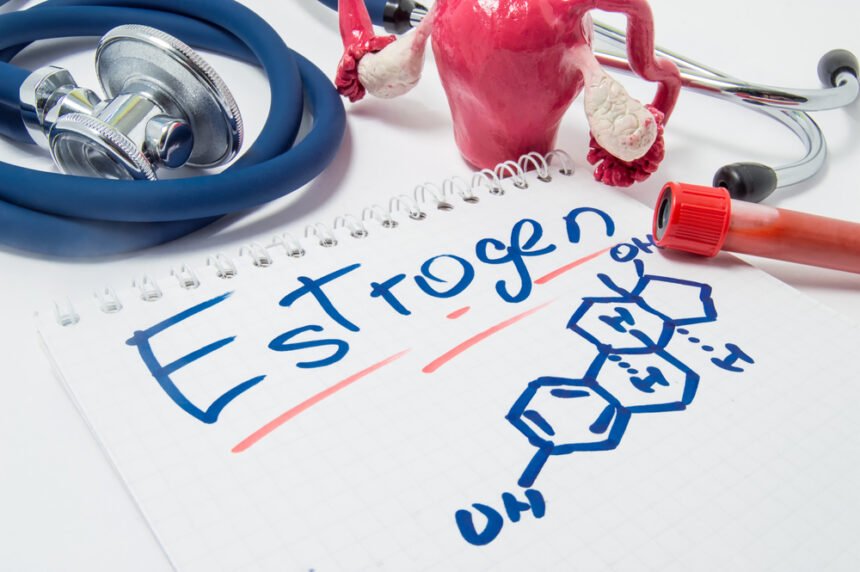It is not enough that women have to go through menopause and the decline in estrogen, progesterone, and testosterone production. It seems they also face the reduction in growth hormone levels even long before menopause appears. Human growth hormone ? HGH ? is one of, if not the most influential hormones in the body. However, what many women do not know is that there is a definite relationship between HGH and estrogen. It may seem strange to learn that female?s bodies produce more HGH than men. The fact that men, who experience greater growth than women, have less HGH seems counterintuitive. The truth is that HGH production is linked to estrogen levels. When menopause arrives, typically toward the end of a woman?s 40s or early to mid-50s, she may notice some unpleasant changes. These symptoms of menopause include:
- Hot flashes
- Weight gain
- Night sweats
- Muscle loss
- Mental fog
- Decreased bone density
- Vaginal dryness
- Low libido
- Insomnia
- Forgetfulness
- Depression
- Mood swings
Every item on that list can also be tied to growth hormone deficiency. Of course, low HGH levels are also to blame for many other symptoms. Long before menopause, a woman may already notice these changes. Growth hormone production begins to decline in the 20s. Can changes in HGH cause estrogen levels to increase or decrease? It is not as much a causal effect as it is a reciprocal action, as we will show in this report.
Does HGH Affect Estrogen Levels? When we look at how HGH impacts estrogen levels, the effects are often seen most in younger women. Growth hormone plays a significant role in female fertility to the point where growth hormone deficient (GHD) women often suffer from infertility. All females need three primary hormones for fertility ? progesterone, estrogen, and testosterone. Progesterone is the precursor to both estrogen and testosterone production. The connection between HGH and estrogen, progesterone, and testosterone is that growth hormone therapy for women helps modulate their release. Throughout the monthly ovarian cycle, HGH influences the production of these steroid hormones. The impact of HGH on estrogen levels means that if growth hormone production declines, it will likely inhibit the functions of a female?s sex hormones. HGH also assists with the luteal cells in the placenta before progesterone production there begins.
What is the Impact of Estrogen on HGH Levels? Many people are using a Progesterone Capsule to help fight the aging process .While this pill can be useful, it is best used in conjunction with estrogen supplements.
The impact of estrogen on HGH levels is just as significant. When HGH enters the bloodstream, some of its signals go to the liver to induce insulin growth factor 1 production. The hypothalamus can measure how much IGF-1 is in the bloodstream to let it know when to secrete hormones that stimulate HGH release. The relationship here with HGH and estrogen is that estrogen also impacts the liver. Changes in hormone levels are also tied to specific times in a woman?s monthly cycle. Concentrations of IGF-1 and GH are higher when a woman is in the periovulatory phase and lower in the early follicular phase. Pregnancy can also influence HGH production as less comes from the pituitary gland and more from the placenta Oral estrogen helps modulate growth hormone action in the liver that can impair IGF-1 production. One of the factors that lead to a decrease in HGH levels is weight gain. Like estrogen, progesterone, and testosterone balances changes during menopause, many women experience weight gain. This is caused by a condition called estrogen dominance when estrogen goes unopposed by testosterone and progesterone. Too much estrogen causes the body to increase fat retention. Excess weight often leads to a further decline in HGH levels.
How Do I Get Balanced HGH and Estrogen Levels? It is essential that women undergo comprehensive hormone blood testing if they have any of the symptoms of growth hormone deficiency or menopause. These changes can indicate imbalanced hormone levels. Ignoring the warnings signs of low levels of HGH and estrogen can increase the risk of heart disease, stroke, type 2 diabetes, osteoporosis, high blood pressure, dementia, and more. Because both growth hormone deficiency and low estrogen, progesterone, and testosterone levels often occur together, the doctor may prescribe HGH with estrogen or one of the other two hormones. That decision comes from a detailed review of the blood test, physical exam, and health history reports. Customized hormone replacement therapy offers a woman the best possible treatment for her needs. HRT is not a one-size-fits-all treatment. It must address each person?s hormone levels to get the optimum results.

